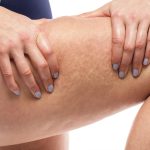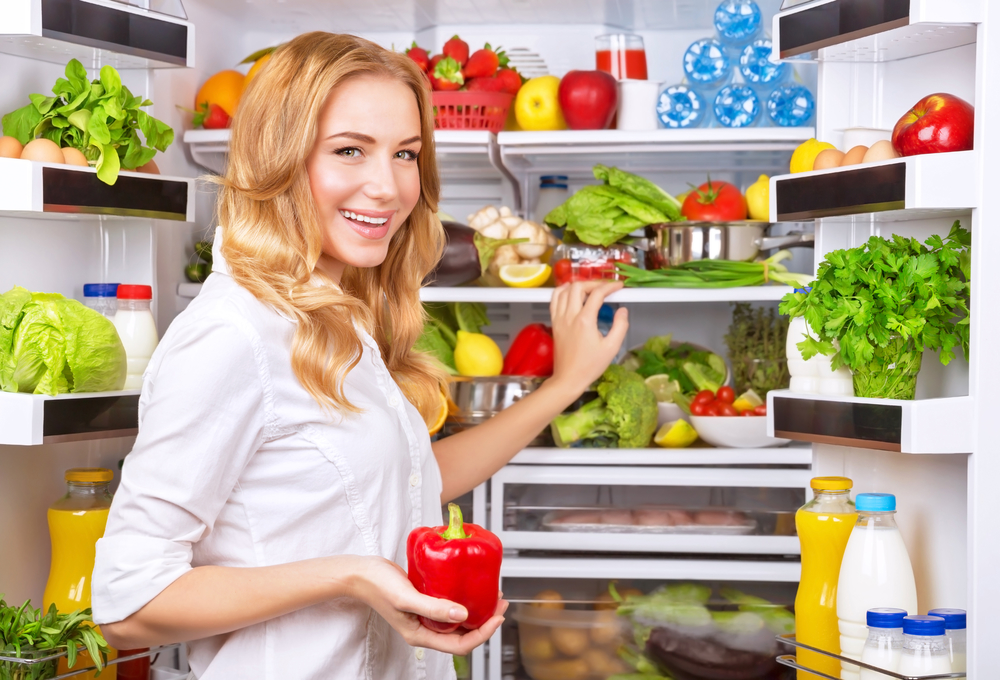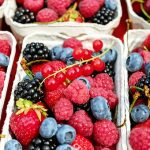Appetite and Stress
Desire to eat food, not just as a response to feeling hungry, is called appetite. It is distinct from hunger, which is a physiological need for sustenance. Many elements can influence it, such as the surroundings, way of life, physical and mental wellbeing, and of course – stress.
Stress can have varying impacts on someone’s eating habits depending on the individual.
It is possible that people may have varied levels of hunger when under pressure, depending on the stressful situation and whether or not they are inclined to turn to food when feeling emotional. Research has determined that those who tend to limit their intake of food could be more likely to eat more under a situation of distress. This behavior of managing what one eats is known as restrained eating, and it has been identified as a predictor of overeating when under pressure.
In 2000, a cross-sectional research revealed that those who had a tendency to restrict how much food they ate exhibited a significantly amplified appetite as a result of emotional trouble in comparison to those who did not modify their intake of food in any way. The cause behind this reaction in abstemious eaters is not extensively recorded. One hypothesis is that when under stress, individuals on a diet lose their restraints related to eating and the enforcement of controlling what they consume is no longer a primary concern.
One’s physical appetite may contribute to this, as well as the concept of lack of supply, that is to say, if we think certain eats are not available or in short stock, we might be more admiring of them.
READ MORE: The 11 Effects Of Stress On The Body and Mind
Changes to Hunger in Response to Stress
Once stressed, a series of responses take place in the body. The hypothalamus secretes corticotropin-releasing hormone (CRH) while the pituitary gland produces and discharges adrenocorticotropic hormone (ACTH) into the bloodstream. The hormone ACTH attaches to a receptor in the adrenal cortex. The binding of ACTH is what causes the secretion of glucocorticoids, among which is the renowned stress hormone cortisol.
When experiencing stress over an extended amount of time, the release of glucocorticoids is likely to be responsible for the impulse to devour more food than usual. Once they have been let out, they have the influence of various appetite controlling hormones like leptin, ghrelin and neuropeptide Y.
Hyper-Palatable Foods and Stress
Have you ever found yourself reaching for a bar of chocolate or a certain type of food that you enjoy when you are feeling overwhelmed? It appears that this occurrence is not as unusual as one may assume and there is a growing collection of proof for a scientific rationale. Studies have suggested that food that is highly appetizing, such as those that are high in sugar, salt, and fat, can affect the reward pathways in the brain the same way that drugs, such as opiates, would, however, it isn’t exactly the same as drug dependence.
A research study indicated that people who described their lives as stressful had a heightened urge to consume and preferred to eat higher-quality snacks, like chips, burgers and sodas. This clarifies why we tend to eat particularly appetizing foods when we are anxious in an effort to make ourselves feel better. The brain will reward pathways that are triggered by fat and sugar, and these are also a cheap way to acquire short-term joy.
We can form the practice of turning to food to help us manage stress, especially if we haven’t acquired other skills for dealing with stress or based on what we saw our caregivers doing in our youth. It’s OK to turn to food as a way of dealing with stress, but if it’s the only way we can deal with a difficult situation or if the act of doing so creates additional chaos, then it becomes a problem.
Alternative: Using alcohol as a means to cope can significantly affect our food selections; for instance, individuals may have a weaker sense of restraint when it comes to eating while intoxicated, or they may choose to ignore their dietary needs while consuming alcohol.
Stress, Sleep and Appetite
Approximately one-third of all inhabitants of the United Kingdom are having trouble sleeping, commonly due to tension and other anxieties. It may appear that the most noticeable consequence of insufficient sleep is feeling lethargic and drowsy the following day; however, not getting the right amount of rest can also have an unintended effect on your hunger.
The Wisconsin Sleep Cohort Study uncovered that individuals who just rested 5 hours per night had lower amounts of leptin and higher amounts of ghrelin when compared to those who slept for 8 hours. The results of a different investigation revealed that folks who get an average of 5-6 hours of rest each day have much lower amounts of leptin in their bodies.
Research from several sources has determined that those who get little to no sleep (5-6 hours or less) battle with overeating snacks instead of having regular meals. These findings suggest that insufficient amounts of sleep are linked to higher calorie consumption but poorer dietary quality.
Research has identified a connection between more sleep during the day and higher levels of food cravings and a larger caloric intake among teenagers. It appears that even if you take a nap in the middle of the day, it may not be very effective in controlling your hunger.
Tips for Stress Management
- Identify the root cause – think about what’s actually causing you to feel stressed and see if you can do something to take control of the situation.
- Have a support system – make sure you have a good network of people, whether that’s with friends, family or a therapist, who can help you to relax or enable you to see things in a different light.
- ‘Me time’ – make sure you’re creating space in your life for ‘me time’. This doesn’t necessarily always mean taking an hour out of your day to put on a face mask and have a bath (although it can be), but it might also mean going for a walk, taking a break from your phone or even just going to bed earlier.
- Try to avoid relying on alcohol, smoking or caffeine as a way of coping through stress.
If You Experience Increased Comfort Eating or Binge Eating:
It is essential to be as kind to yourself as possible, particularly when stress is causing you to overeat. It might be worthwhile to aim for a meal every 2-4 hours, and observe any emotional triggers and unmet needs you are dealing with. At this stage, you can consider if there are other approaches to relieving stress and taking care of yourself that you can make use of, besides not eating.
It is important to seek help from medical experts if you find that you are having difficulty dealing with the situation on your own.
The Study
There was no difference in stress-related mood or eating behavior between those who ate a high-protein meal and those who ate a high-carbohydrate meal.
Background
Eating food containing different amounts of macronutrients, particularly ones with a lot of carbohydrates, could affect the way one eats while under stress.
Our objective was to determine if eating high-protein or high-carbohydrate meals affects apprehensive emotions, cravings for and appreciation of food, and the total amount of food eaten afterwards.
Methods
A group of 38 participants (19 males, 19 females, average age 25 ± 9 years, average BMI 25.0 ± 3.3 kg/m2) came to the university on four occasions, all while fasting. They took part in two stress sessions during which they were given high-protein meals, as well as two rest sessions during which they were given high-carbohydrate meals (following a randomized crossover design). The test meals included an equal proportion of high-protein and high-carbohydrates that had the same energy concentration (4 kJ/g) and provided 30% of the energy needed in a given day (65/5/30 vs. 6/64/30). Stress was induced using an ego-threatening test. The computer test assessed how much a person liked or wanted bread, filling, drinks, dessert, snacks and stationery (used as a non-food substitute for control) before and after eating. After taking the measurement for how much the participants wanted food after eating, they were given and ate the food items they had requested (the amount of energy they consumed after the meal). The amount of people’s appetite was measured using Visual Analogue Scales, their current feelings using the Profile Of Mood State and State Trait Anxiety Inventory questionnaires, and the energy they consumed after a meal was noted.
Results
Participant characteristics
No important variances were observed between males and females in terms of age, body mass index, hip circumference, and levels of impulsivity. When measuring dietary restraint and feeling of hunger, women showed greater levels than males (P < 0.05). Male individuals were found to have greater height, body weight, and waist circumference than female individuals (P < 0.05).
Stress parameters
Research using both the POMS and STAI questionnaires revealed a heightened sense of depression (POMS ΔAUC = +210.8 ± 76.4 × minute-1, P < 0.01), tension (POMS ΔAUC = +227.7 ± 74.0 × minute-1, P < 0.01), confusion (POMS, ΔAUC = +180.7 ± 71.7 × minute-1, P < 0.02), anger (POMS ΔAUC = +211.5 ± 74.3 × minute-1, P < 0.01), and anxiety (STAI ΔAUC = +415.5 ± 126.8 × minute-1, P < 0.01), when participants went through the stress vs. rest sessions (ANOVA repeated measures: AUC of POMS and STAI scores stress vs. rest × high-protein vs. high-carbohydrate, main effect of stress). This data is proof that the applied stressor was successful in creating psychological stress, regardless of what type of diet the participants consumed. The results of investigating the effects of consuming a high-protein meal or a high-carbohydrate meal on levels of depression, tension, anger, and anxiety did not differ significantly (ANOVA repeated measures: evaluation of the changes in pre- to post-meal stress and rest versus high-protein and high-carbohydrate, P > 0.1).
No distinctions in POMS and STAI results were seen between those with high or low levels of disinhibition, regardless of the condition (AUC and per time point).
Appetite profile
The results showed that the participants were in a fasted state with low satisfaction and fullness ratings (11.8 ± 2.5, 9.6 ± 1.9 mmVAS), as well as high levels of hunger, appetite, and thirst (80.6 ± 2.6, 83.9 ± 2.2, 68.1 ± 3.7 mmVAS). The intake of the test meal triggered a significant improvement in scores for feeling full (-63.2 ± 4.6, -69.9 ± 3.7 mmVAS, P < 0.001) and sated (+67.8 ± 3.3, +68.5 ± 3.3, +33.8 ± 4.3 mmVAS, P < 0.001), and a reduction in scores for hunger, the want for more food, and thirst. Comparisons between states of stress and rest as well as between high-protein and high-carbohydrate diets didn’t affect feelings of hunger, thirst, cravings, satiety, and being overstuffed (as evaluated with the area under the curve and throughout the time period). The VAS scores associated with hunger, ‘desire to eat’, thirst, satiety, and fullness were the same no matter if the participant had high or low disinhibition variables, regardless of the conditions tested (AUC, per time point, and shift in score before and after consuming the test meal).
Ingestion of the trial foods resulted in a decrease in Visual Analogue Scale (VAS) fondness and craving ratings for the trial foods (mean fondness score before and after the meal: 53.5 ± 3.7, 43.4 ± 4.0 mmVAS; P < 0.001; average craving score before and after the meal: 65.3 ± 4.3, 8.7 ± 2.0 mmVAS;). The influence of tension and rest in addition to high-protein and high-carbohydrates had no bearing on the enjoyment of the trial meals before and after consumption, verifying that the dinners had regular liking. The condition of stress compared to rest did not have any effect on the desire to eat (VAS) for the meals prior to and after the meal, though during stress the reduction in wanting food before to after the meal was bigger when the meal had higher levels of protein rather than carbohydrates (P = 0.03).
The level of preference (VAS) of the test meals did not vary between those with high and low disinhibition, in all circumstances. The yearning for the food did not differ throughout the experiment, with the exception of when participants with a high level of disinhibition had the high-protein meal in a stressful situation – their desire for the food was less than those with a low level of disinhibition (P < 0.01).
Computer test
A significant interaction effect between post-meal food ‘wanting’ stress and rest, high-protein and high-carbohydrate, high and low disinhibition was seen in average food ‘wanting’ (P < 0.04, ANOVA repeated measures). A higher protein meal proved to cause those with strong disinhibition levels to feel less of a desire to eat than those who had higher carbohydrate meals, (P < 0.01). The participants who had high levels of disinhibition demonstrated a greater average desire for food when they were stressed compared to when they were resting, following the high-protein meal (P < 0.02).
Energy and macronutrient intake
The amount of wanted food items consumed after a meal was not changed by whether the individual was in a period of stress or rest and if they had had a high protein or high carbohydrate meal. It was observed that post-meal energy intake was influenced by a lack of self-control in eating: an interaction was found between post-meal energy intake stress and rest, high-protein and high-carbohydrate diets, and high and low levels of restrained eating (P = 0.01, ANOVA repeated measures). Individuals with high disinhibition experienced lower food intake after a high-protein meal than after a high-carbohydrate meal, when they were at rest (significance level P < 0.01), but not when they were under pressure. Participants who displayed high levels of disinhibition ate more energy after they ate a meal high in protein while under stress than when not under stress (P = 0.01).
An examination of the amount of carbohydrates, fats, and proteins taken in through the desired meal demonstrated that people who took in higher levels of proteins as opposed to carbohydrates had a smaller subsequent intake of carbs, fat, and proteins when feeling unrestrained (P < 0.05), however this effect was not noticed in times of stress.
Conclusions
Eating a meal high in protein rather than carbohydrates does not appear to have a big effect on stress-related eating habits. Only individuals with high levels of inhibition experienced a drop in desiring and energy intake during quiet circumstances, but this effect was no longer present during compulsion. Acute stress overruled effects of consumption of high-protein foods.









